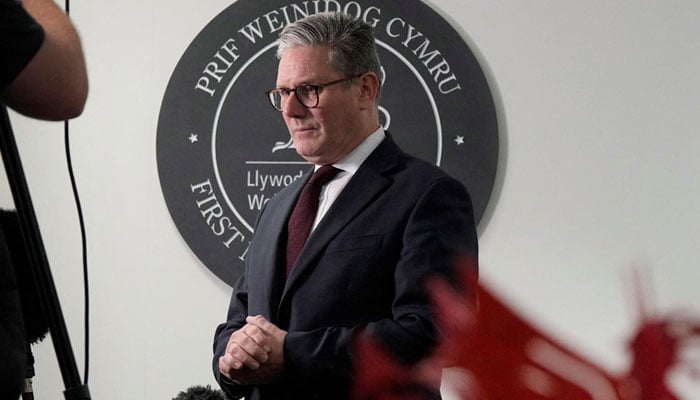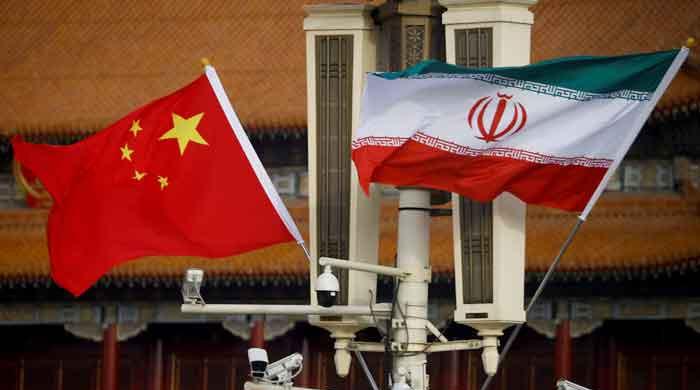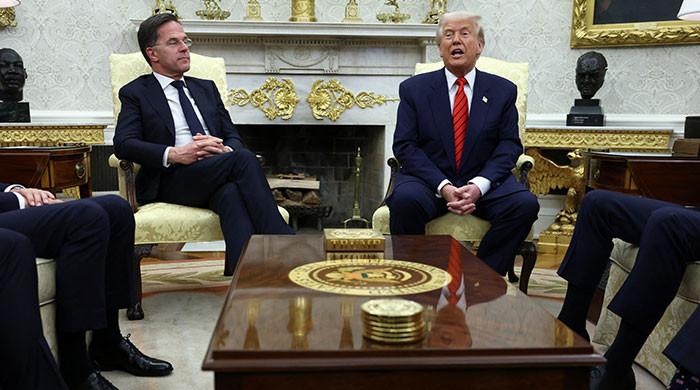PM Keir Starmer 'concerned' after dramatic Labour support collapse among Muslims
Labour Party warned not to take Muslim voters for granted after 5 independent pro-Palestine candidates won
July 09, 2024

- Labour Party to address loss of votes, Keir Starmer says.
- Labour lost seats to independent, pro-Palestine candidates.
- UK PM pushes Israel's Netanyahu for ceasefire in Gaza.
LONDON: British Prime Minister Keir Starmer has said he is "concerned" about the areas where his party was not able to secure votes — as results of July 4 elections showed there has been a dramatic Labour collapse in the constituencies with the highest proportions of Muslims.
Speaking to reporters in Wales, the PM was asked if he accepts there is a problem between the Labour Party and British Muslims, following a drop in vote share in areas with a high Muslim population.
Starmer said: "Very many people voted Labour in that general election who've never voted Labour before. We now hold seats in parts of the country that have never had a Labour MP, so this is an incredibly strong mandate.
"Of course, wherever we weren't able to secure votes, I'm concerned about that."
He added that where his party did not secure the votes it would work to "address that".
These were first comments of the 61-year-old PM after Labour lost five key seats to pro-Palestine candidates, came close to losing nearly 10 seats in Muslim voters' areas and it emerged that nearly 50 pro-Gaza candidates had won the election.
Estimates show that in the 21 seats, where more than 30% of the population is Muslim, Labour's share dropped by 29 percentage points from an average 65% in 2019 to 36% in 2024.
Turnout also fell more steeply than average (down 11.2 percentage points) in these seats, suggesting that some disaffected Muslim electors abstained while others voted for other candidates.
In these seats, the total number of Labour votes fell from more than 600,000 in 2019 to just under 300,000 in 2024. That is the equivalent of more than half the total national drop in the Labour vote between the two elections. Labour has lost 537,688 votes compared with 2019.
The loss of Muslim votes was also a problem for Labour in some seats with smaller Muslim communities.
In the 43 next-most Muslim constituencies (between 15% and 30% of the population), Labour lost another 300,000 votes.
The Labour Party has been sent a strong message not to take for granted the Muslim voters after five independent pro-Palestine candidates, including former Labour Party leader Jeremy Corbyn won on July 4 general elections with Israel's war on Gaza among key issues for voters.
The other independent candidates who won their seats from Labour on Friday on the issue of Israel's war on Palestine and Labour's support for the war include Shockat Adam in Leicester South, Ayoub Khan in Birmingham Perry Barr, Adnan Hussain in Blackburn, and Iqbal Mohamed in Dewsbury and Batley.
In several constituencies, Labour majorities were slashed significantly and over half a dozen key Labour candidates came close to losing the election to pro-Gaza Independents candidates.
Starmer, the new prime minister of the United Kingdom and the leader of the Labour Party, had his own majority slashed and he was heckled with shouts of "Free Palestine" both at the polling station in his Holborn and St Pancras constituency and at his election count as he was declared to have won his seat.
Starmer won with 18,884 votes with pro-Palestinian activist, independent Andrew Feinstein, in second place with 7312 voters.
Starmer’s majority is down significantly from 22,766 in 2019 to 11,572.
Soon after entering No10 Downing Street, Starmer pushed Israeli Prime Minister Benjamin Netanyahu for a ceasefire in Gaza in one of his first international phone calls since assuming office.
A Downing Street statement has confirmed that the new PM "set out the clear and urgent need for a ceasefire" to Israel's Netanyahu in a phone call.
In a subsequent call with Palestinian Authority leader Mahmoud Abbas, the PM said that statehood was an "undeniable right" for the Palestinian people.











